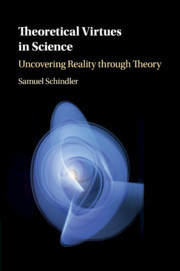Description
Theoretical Virtues in Science
Uncovering Reality through Theory
Author: Schindler Samuel
In-depth discussion of the value of scientific theories, bringing together and advancing current important debates in realism.
Language: English
Subject for Theoretical Virtues in Science:
Approximative price 36.76 €
In Print (Delivery period: 14 days).
Add to cart
Theoretical Virtues in Science
Publication date: 03-2020
Support: Print on demand
Publication date: 03-2020
Support: Print on demand
Approximative price 81.47 €
In Print (Delivery period: 14 days).
Add to cart
Theoretical Virtues in Science
Publication date: 05-2018
260 p. · 15.5x23.4 cm · Hardback
Publication date: 05-2018
260 p. · 15.5x23.4 cm · Hardback
Description
/li>Contents
/li>Biography
/li>
What are the features of a good scientific theory? Samuel Schindler's book revisits this classical question in the philosophy of science and develops new answers to it. Theoretical virtues matter not only for choosing theories 'to work with', but also for what we are justified in believing: only if the theories we possess are good ones (qua virtues) can we be confident that our theories' claims about nature are actually correct. Recent debates have focussed rather narrowly on a theory's capacity to predict new phenomena successfully, but Schindler argues that the justification for this focus is thin. He discusses several other theory properties such as testability, accuracy, and consistency, and highlights the importance of simplicity and coherence. Using detailed historical case studies and careful philosophical analysis, Schindler challenges the received view of theoretical virtues and advances arguments for the view that science uncovers reality through theory.
Introduction; 1. Theoretical virtues, truth, and the argument from simplicity; 2. Pessimism, base rates, and the no-virtue-coincidence argument; 3. Novel success and predictivism; 4. Theoretical fertility without novel success; 5. Ad hoc hypotheses and the argument from coherence; 6. Virtues as confidence boosters and the argument from choice; 7. Philosophy of science by historical means; Conclusion.
Samuel Schindler is Associate Professor in the Centre for Science Studies at Aarhus University, Denmark. He has published his work in journals such as The British Journal in Philosophy of Science, Synthese, and Studies in the History and Philosophy of Science. He has received two major external grants from national research foundations in Germany and Denmark.
© 2024 LAVOISIER S.A.S.

